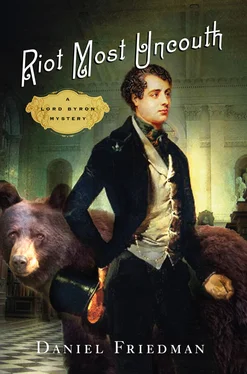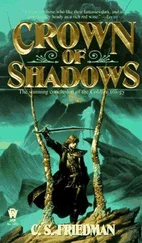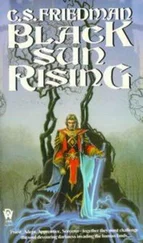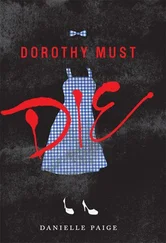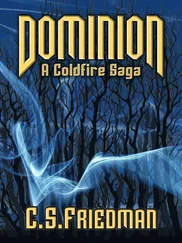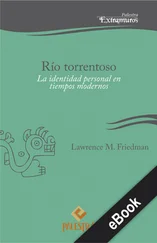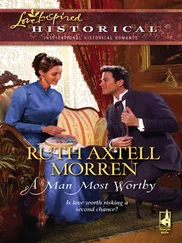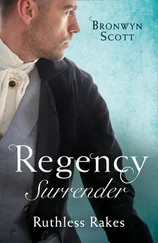Daniel Friedman - Riot Most Uncouth
Здесь есть возможность читать онлайн «Daniel Friedman - Riot Most Uncouth» весь текст электронной книги совершенно бесплатно (целиком полную версию без сокращений). В некоторых случаях можно слушать аудио, скачать через торрент в формате fb2 и присутствует краткое содержание. Год выпуска: 0101, ISBN: 0101, Издательство: St. Martin, Жанр: Исторический детектив, на английском языке. Описание произведения, (предисловие) а так же отзывы посетителей доступны на портале библиотеки ЛибКат.
- Название:Riot Most Uncouth
- Автор:
- Издательство:St. Martin
- Жанр:
- Год:0101
- ISBN:9781250027580
- Рейтинг книги:5 / 5. Голосов: 1
-
Избранное:Добавить в избранное
- Отзывы:
-
Ваша оценка:
- 100
- 1
- 2
- 3
- 4
- 5
Riot Most Uncouth: краткое содержание, описание и аннотация
Предлагаем к чтению аннотацию, описание, краткое содержание или предисловие (зависит от того, что написал сам автор книги «Riot Most Uncouth»). Если вы не нашли необходимую информацию о книге — напишите в комментариях, мы постараемся отыскать её.
Riot Most Uncouth — читать онлайн бесплатно полную книгу (весь текст) целиком
Ниже представлен текст книги, разбитый по страницам. Система сохранения места последней прочитанной страницы, позволяет с удобством читать онлайн бесплатно книгу «Riot Most Uncouth», без необходимости каждый раз заново искать на чём Вы остановились. Поставьте закладку, и сможете в любой момент перейти на страницу, на которой закончили чтение.
Интервал:
Закладка:
Despite the sumptuous feast Murray had prepared, our mood was not celebratory. The murder of Felicity Whippleby had irreparably ruined my morning, and Mr. Burke’s arrival marked the start of something that was likely to become a serious problem and a public embarrassment for me. But even more immediately, the rumors Sedgewyck had heard about my position at the College were not untrue: I was obliged to appear that afternoon before a panel of the Arts faculty to discuss matters relating to my “recent erratic behavior” and a “disturbing trend in academic performance.” The College had finally had enough of my notoriety, and the Fellows had decided to humble me. I didn’t have time for this nonsense; I had a killer to catch.
“I see you, sitting there, eating my food and judging me,” I said, glaring at the Professor. “If you want to say something, then, by all means, have out with it.”
He said nothing and continued chewing, quietly and unappreciatively.
“You are like my mother,” I said to the bear. “You disapprove of my use of credit, and would see me dwell in squalor out of pride and some demented refusal to mark a balance sheet with a bit of red ink. I experienced hardship and poverty as a child, and indebtedness is quite an improvement over those sorry circumstances.”
I had inherited the title of Lord Byron and its lands and incomes when I was ten years old. At the time, my mother and I were living in shabby apartments in Aberdeen; she could afford nothing better on the pittance that was left to her after my father abandoned us.
The previous Lord Byron was my great-uncle William, a man known for his violent temper and his unforgiving nature. Some people called him the Wicked Lord, and the rest avoided calling on him at all.
William had undertaken a systematic endeavor to destroy the accumulated wealth of his title during his lifetime, to spite his estranged son. In furtherance of this end, he let Newstead fall into disrepair. He burned the forests on the estate and slaughtered some two thousand deer. Swarms of insects descended on the property to feast on the rotting timber and carcasses. The Wicked Lord also threw lavish parties and accrued enormous debts, habits that seemed to run in the family.
But William’s son devised a clever maneuver to escape his father’s vindictive schemes; he died. So, too, did my cousin, William’s grandson, who went to Corsica and tried to catch a cannonball with his face. That’s how I, who had never met any of these people, inherited the peerage upon the old man’s death.
It seemed to my mother like God’s justice; after Mad Jack had squandered her assets, she was restored to her appropriate social status by his neglected child’s unlikely inheritance of the barony of Byron.
But the Wicked Lord had left the coffers drained, the properties decrepit, and many of the family’s inalienable, fee tail holdings burdened by liens, leases, and other encumbrances. His own interest had merely been for life, and many of these devices were, thus, illegal. However, untangling his fraudulent dealings and expelling unlawful tenants would require years of litigation.
Though the title didn’t come with a fortune, I was determined, from a very young age, to live in a manner befitting my exalted station. And I learned that bankers opened their purses when gentlemen of my class came calling. Mad Jack always said that only a man who lacked imagination died without debt. And since I was, after all, England’s greatest living poet, I had no shortage of imagination.
As I contemplated my history of financial missteps, the Professor’s fist-sized eyes met mine. The uncomfortable silence was my fault. Our camaraderie relied upon my ability to maintain conversational momentum, since the Professor, despite being a canny judge of character and a splendid dancer, lacked the power of speech.
“Before he disappeared, my father used to speak of immortal creatures who fed on the blood of the innocent,” I said. “My father and I left some business unsettled, and now, just as I have arrived at the full flower of my manhood and have finally become equipped to settle things, a young woman’s corpse has been butchered like a sow’s only a few hundred yards from my own residence and drained of blood. I will not assume this is coincidental, and therefore, investigating the murder must be my first concern. My debts and academic problems are insignificant by comparison.”
The bear just watched me, chewing and looking slightly perturbed.
“Well, if you do not intend to assist me, I have no need of you,” I told him. “I will unravel the mystery of Felicity Whippleby’s death myself.”
The Professor blew a disdainful burp toward me. I ignored this; he was being rude, but there was no reason to start a fight. I did not speak to him again, and after a while, he retired to his chambers for an afternoon nap. I would not be able to join him in repose; my serious meeting with the faculty was only an hour hence. I called for Joe Murray to decant the remainder of the wine. The appointed time for my hearing drew close, so continuing to drink claret would be imprudent and possibly detrimental.
It was time for whisky.
Chapter 6
This place is the Devil, or at least his principal residence. They call it the University, but any other appellation would have suited it much better, for Study is the last pursuit of the Society; the Master eats, drinks, and sleeps, the Fellows drink, dispute and pun; the Employment of the Under graduates you will probably conjecture without my description.
- Lord Byron, from an 1805 letter to John Hanson, his attorney“We hope you’ll understand, Lord Byron, that our purpose here today is to ascertain whether you are having problems and to offer our assistance to you.” As he said this, the bearded professor pressed his thin lips into an approximation of a grin. “We have known you for some time. We’ve watched you grow, and we feel quite affectionate toward you. We’re concerned about your academic progress and your personal growth. But this is not an inquisition.”
“Then why are your chairs so much bigger than mine?” I asked.
The three concerned faculty members were seated in ornate, high-backed thrones behind a heavy oak table in a big, drafty lecture hall lit only by a couple of those flickering oil lamps and located in the bowels of one of the imposing buildings that made up the College’s Great Court. To get to the place, I’d had to pass through the massive Great Gate and under a huge, dour-looking statue of Henry VIII, who had founded the College. I wondered how old Henry would feel about my behavior, and what he’d think of the disposition of Felicity Whippleby.
The old dons had provided me a humble three-legged stool to squat upon in the near darkness. The entire arrangement seemed orchestrated to make me feel small. Their plan had failed, however. Marble floors and Corinthian columns had no capacity to intimidate me, and I was not the sort of subservient youth who would prostrate himself before anyone with sallow flesh, colorless lips, and a craggy countenance. I was Lord Byron, and I could expand to fill any space.
“I assure you, little thought was given to furniture in scheduling this meeting.”
“Would you mind, then, if I took one of the big chairs?”
A long pause, and then: “Of course. It was not our intention that you should be uncomfortable.”
The professor on the left rose from his seat, and I took his position at the oak table while he situated himself upon the stool. I had taken courses from each of these men, but I had a poor attendance record, and even when I was present in class, I generally whiled away those hours of instruction in various states of reverie, inebriation, and slumber and had never bothered to learn my teachers’ names. Doing so seemed an unnecessary exertion.
Читать дальшеИнтервал:
Закладка:
Похожие книги на «Riot Most Uncouth»
Представляем Вашему вниманию похожие книги на «Riot Most Uncouth» списком для выбора. Мы отобрали схожую по названию и смыслу литературу в надежде предоставить читателям больше вариантов отыскать новые, интересные, ещё непрочитанные произведения.
Обсуждение, отзывы о книге «Riot Most Uncouth» и просто собственные мнения читателей. Оставьте ваши комментарии, напишите, что Вы думаете о произведении, его смысле или главных героях. Укажите что конкретно понравилось, а что нет, и почему Вы так считаете.
